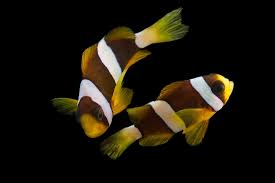Chinese tea culture is one of the most ancient and sophisticated traditions in the world, deeply rooted in health, wellness, and philosophy. While traditional fresh teas like green tea, white tea, oolong tea, and black tea are well known, Chinese herbal teas are equally significant for their medicinal and therapeutic benefits.

This article explores the types of fresh Chinese teas, the most nutritious herbal teas, and how these natural infusions contribute to better health and well-being.
1. The Essence of Chinese Fresh Tea
Chinese fresh tea, known as “Lu Cha” (绿茶) when referring to green tea and “Xian Cha” (鲜茶) for freshly harvested leaves, is celebrated for its purity, freshness, and high antioxidant content.
1.1. Health Benefits of Fresh Chinese Tea
✔ Rich in antioxidants – Fights free radicals, slowing down aging.
✔ Boosts metabolism – Aids in weight loss and fat burning.
✔ Supports heart health – Reduces the risk of heart disease and stroke.
✔ Enhances mental clarity – Increases focus, reducing stress and anxiety.
✔ Detoxifies the body – Removes toxins, promoting clear skin and digestion.
1.2. Popular Types of Fresh Chinese Tea
- Longjing (Dragon Well) Green Tea – Famous for its smooth, nutty flavor and high catechin content.
- Bai Hao Yin Zhen (Silver Needle) White Tea – A delicate tea packed with anti-aging polyphenols.
- Tieguanyin Oolong Tea – A fragrant tea known for balancing digestion and reducing cholesterol.
- Pu-erh Fermented Tea – A rich tea that supports gut health and detoxification.
Chinese fresh teas are often paired with herbs and botanicals to create powerful, healing infusions.
2. The World of Nutritious Chinese Herbal Teas
Chinese herbal teas, known as “Liang Cha” (凉茶, cooling tea), have been used for centuries in Traditional Chinese Medicine (TCM) to restore balance and promote longevity.
2.1. Chrysanthemum Tea (菊花茶 – Jú Huā Chá)
Best for: Cooling the body, relieving stress, improving eyesight.
Chrysanthemum tea is a floral infusion made from dried chrysanthemum flowers. It is often consumed to reduce internal heat, making it ideal for hot summer days.
✅ Soothes headaches and eye strain.
✅ Detoxifies the liver, reducing acne and skin inflammation.
✅ Boosts immunity, helping fight colds and flu.
📌 How to prepare: Steep dried chrysanthemum flowers in hot water for 5-10 minutes. Add rock sugar for sweetness.
2.2. Ginseng Tea (人参茶 – Rén Shēn Chá)
Best for: Boosting energy, enhancing focus, strengthening immunity.
Ginseng, a powerful adaptogen, is widely used in Chinese medicine to improve vitality and endurance.
✅ Fights fatigue, boosting mental and physical energy.
✅ Strengthens the immune system, preventing illness.
✅ Enhances cognitive function, improving memory and focus.
📌 How to prepare: Steep ginseng slices in hot water for 10-15 minutes. Drink in the morning for energy.
2.3. Goji Berry Tea (枸杞茶 – Gǒu Qǐ Chá)
Best for: Enhancing skin health, improving vision, anti-aging.
Goji berries, also called “red diamonds”, are packed with vitamins, amino acids, and antioxidants that promote longevity.
✅ Supports youthful, glowing skin.
✅ Protects eye health, reducing digital eye strain.
✅ Strengthens the immune system.
📌 How to prepare: Add goji berries to hot water and let steep for 5 minutes. Drink daily for anti-aging benefits.
2.4. Lotus Leaf Tea (荷叶茶 – Hé Yè Chá)
Best for: Detox, weight loss, digestion.
Lotus leaf tea has been used for centuries to aid digestion and burn fat.
✅ Promotes weight loss by reducing fat absorption.
✅ Regulates digestion, preventing bloating.
✅ Detoxifies the body, improving skin clarity.
📌 How to prepare: Boil dried lotus leaves in water for 10 minutes. Drink after meals for best results.
2.5. Ginger Tea (姜茶 – Jiāng Chá)
Best for: Warming the body, improving circulation, boosting immunity.
Ginger tea is a well-known remedy for colds, nausea, and inflammation.
✅ Boosts blood circulation, keeping the body warm.
✅ Relieves nausea and indigestion.
✅ Strengthens immunity, reducing the risk of infections.
📌 How to prepare: Slice fresh ginger, boil in hot water for 10 minutes, and add honey for flavor.
2.6. Red Date Tea (红枣茶 – Hóng Zǎo Chá)
Best for: Nourishing blood, improving sleep, balancing hormones.
Red dates (Jujube fruit) are known as “the king of longevity” in Chinese medicine.
✅ Improves blood circulation, preventing anemia.
✅ Promotes restful sleep and reduces stress.
✅ Balances hormones, supporting women’s health.
📌 How to prepare: Boil dried red dates in hot water for 15 minutes. Drink before bed for relaxation.
3. Combining Fresh Tea with Herbal Infusions
To maximize health benefits, Chinese fresh tea is often blended with herbs. Here are some unique tea combinations:
🫖 Green Tea + Goji Berries → Boosts antioxidants and eye health.
🫖 White Tea + Chrysanthemum → Aids skin rejuvenation and cooling the body.
🫖 Oolong Tea + Lotus Leaf → Supports digestion and weight loss.
🫖 Pu-erh Tea + Ginger → Enhances metabolism and warms the body.
🫖 Black Tea + Red Dates → Strengthens blood circulation and relieves fatigue.
4. The Role of Herbal Teas in Traditional Chinese Medicine (TCM)
In TCM, herbs and teas are used to balance the body’s Qi (energy flow). Chinese fresh and herbal teas help:
✔ Remove excess heat (Chrysanthemum, Lotus Leaf).
✔ Boost energy and Yang Qi (Ginseng, Ginger).
✔ Nourish Yin and Blood (Red Dates, Goji Berries).
✔ Strengthen digestion and metabolism (Pu-erh, Oolong).
By choosing the right tea for your body constitution, you can achieve better health and balance.
5. Conclusion: Embracing Chinese Fresh and Herbal Teas for Wellness
Chinese fresh teas and nutritious herbal infusions offer a natural way to improve health, beauty, and vitality. Whether you seek detoxification, anti-aging benefits, digestive support, or mental clarity, there is a tea for every need.
✨ Embrace the wisdom of Chinese tea culture and make fresh tea and herbal infusions part of your daily life! 🍵💚
Leave a Reply